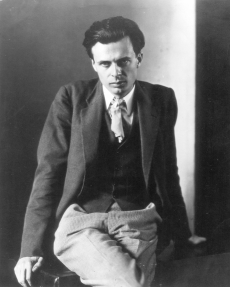
Email: EllaTournes@bexleygs.co.uk
Total Article : 45
About Me:Sixth form student currently studying English Literature, Drama and Theatre Studies, Classical Civilisation and History.

Early 20th century dystopia, as a genre, is arguably defined by two works of fiction, ‘1984’ by George Orwell, and ‘Brave New World’ by Aldous Huxley. George Orwell and Aldous Huxley introduce the worlds of ‘1984’ and ‘Brave New World’ respectively, it is made clear that the worlds the readers are submerged into are supposed to be very different to their own – both authors make the dystopian, ‘other’ element of their novels completely transparent. However, these dystopian worlds are also different to one another, and are presented differently. Huxley works hard to completely alienate the reader from the Brave New World – as he does throughout the novel, from the use of specific scientific jargon, to the actual year the book is set (so far in the future that any immediacy is removed from the reader’s experience). Orwell, however, makes it clear that the novel is set in a world that is not contemporaneous to the reader, but also makes certain aspects of Oceania relevant to the reader, with obvious allusions to the real-life world of post-war Britain.
Both Huxley and Orwell introduce their novels with a contradictory phrase that makes the reader aware that worlds of the respective novels are not akin to their own. The first sentence of ‘1984’ refers to the clocks striking ‘thirteen’ – an allusion to a society that measures time differently to the reader’s. The first sentence of ‘Brave New World’ mentions a ‘squat grey building of thirty-four stories’. The words ‘squat’ and ‘thirty-four’ are in conjunction with each other – the phrase seems almost oxymoronic to a reader whose perception of a ‘squat’ building isn’t anything near as high as ‘thirty-four stories’. By using these contradictory terms, the reader is made instantly aware that they have been submerged into a society totally different to their own – Huxley and Orwell effectively set up the dystopian natures of their novels by presenting inherent elements of society as unfamiliar, and therefore unsettling to the reader.
State mottos, or slogans, are used in the beginning of both novels. The motto of Huxley’s dystopia is ‘COMMUNITY, IDENTITY, STABILITY’ and is mentioned in the third sentence of the novel. Orwell’s is ‘BIG BROTHER IS WATCHING YOU’, and is presented to the reader after the introduction of the novel’s protagonist, and after the description of Victory Mansions. The build of tension up to the depiction of the indirect voice of the Party in ‘1984’ is arguably representative of the more implicit, tacit nature of their authorities, as opposed to the more open, candid nature of the authorities in Brave New World, with their obvious caste-system and unconcealed indoctrination. The capital letters the slogans are written in give the them a firm, emphasised authoritative voice – the reader can feel the power and authority behind them. In terms of the actual content of the slogans, ‘Brave New World’ seems to put an emphasis on communality (through the use of the word ‘community’) and ‘1984’ seems to puts an emphasis on the individual (through the pronoun ‘you’).

0 Comment:
Be the first one to comment on this article.